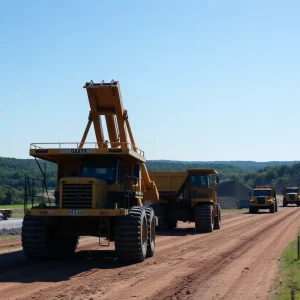New York City’s Historic Efforts to Combat Rising Sea Levels
In a landmark move, New York City is embarking on a revolutionary undertaking in an effort to combat the threat of rising sea levels. With its intricate array of sprawling metropolises, the city is perceived as particularly vulnerable to climate change. This initiative seeks to protect the city’s infrastructure, citizens, and economic interests from potential devastations caused by rising sea levels.
A Gargantuan Undertaking
The initiative termed the “Manhattan defense mechanism” requires the creation of extensive barriers all across the city’s coastline. In other words, New York is planning to ‘fortify’ its coastline. This project of monumental scale undeniably represents the city’s determination to defy the threats imposed by climate change, promoting a spirit of resilience within its denizens.
Technologies and Innovations at Play
The plan largely relies on advanced geoengineering techniques, which involve making large-scale modifications to the Earth’s physical landscape in an effort to counteract the impacts of climate change. This is indeed an extreme step; typically, attempts to deal with climate change focus more on reducing greenhouse gas emissions rather than undertaking massive engineering projects. However, the severity of New York City’s situation calls for urgent, immediate measures.
The process begins with the construction of seawalls, essentially large barriers or embankments built to prevent the sea from encroaching onto land. These walls are heavily reinforced with steel and concrete, making them durable and resistant to weather conditions. In certain highly vulnerable areas, the city is also contemplating the creation of artificial islands as an additional protective measure.
The Role of Artificial Intelligence
Beyond pure engineering, the plan also involves the tactical use of Artificial Intelligence (AI). AI systems will be employed to predict future climate patterns and the likely effects on the city. This information can then be used to strategize and adapt the city’s architecture and infrastructure accordingly to mitigate future risks.
Bioengineering: A Step Further
The initiative also introduces the concept of bioengineering, employing the benefits of natural processes to enhance the city’s defensive mechanisms. It suggests the use of marshlands and oyster beds around the city’s perimeter to act as a first line of defense, helping to dissipate storm surge energy before it reaches populated areas. This hints at a glimmer of hope in the incorporation of nature-based solutions in climate risk reduction.
Economic Implications and Funding
The city expects the project to require astronomical sums. However, funding is anticipated from a combination of federal, state and city resources, as well as from private investors and philanthropic organizations. Furthermore, the city believes that the cost of this preemptive measure, though significant, will be dwarfed when compared to the economic damages caused by the potential flooding.
After all, this isn’t just about the survival of a city, but the welfare of millions who call it home.
Setting an Example
While the project is indeed intimidating in its scale and complexity, the implications extend far beyond the borders of New York. With this bold move, the city sets a precedent for other coastal metropolises around the globe, informing them that it is time to start preparing for a world increasingly influenced by climate change.
As the planners continue to hammer out the details, the world watches with bated breath. Surely, this is an initiative that will either set a winning example or serve as a cautionary tale for cities across the world.









